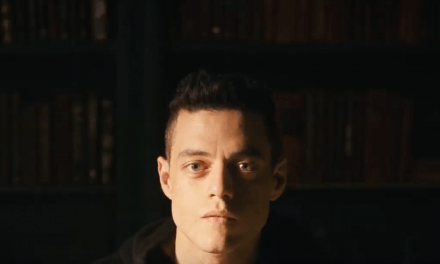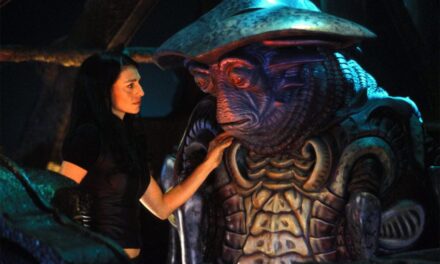I say this as an ardent, lifelong fan of American football, but at this point it seems impossible not to recognise that the NFL is a multibillion-dollar business with a somewhat suspect record on workers’ rights. This is particularly the case when it comes to health and safety (Fainaru-Wada and Fainaru 2013; Keefer and Kneisner 2023). This multibillion-dollar business is also strongly tied to the media, particularly its lucrative broadcast and, more recently, streaming agreements, that impact those broadcasts including in terms of the financial return for the NFL. The result is a combination of a profit-before-people approach and the turn to streaming-only for some games which raises the concern that the health and safety issues already present will be exacerbated. Indeed, I would argue, the disregard for people’s health and safety is already apparent regarding how these streaming-only agreements may have impacted decision-making when it comes to playing in adverse weather conditions.
Given the number of outdoor NFL stadiums, it should be no surprise that weather plays a large role in games. If there are strong winds then the passing and kicking games are diminished and cold weather can impact everything from the inflation/deflation of the footballs due to the ideal gas law[1] to a potential increase for injury.[2] Inaccurate forecasts have been blamed for losses, though the American cable network The Weather Channel has refuted that through an empirical demonstration comparing the forecast temperatures with the measured temperatures at several games. Of greater concern, however, is the fact that NFL games are large, logistically complex operations involving thousands of people moving from their points of origin to the stadium, remaining there for many hours and then departing, often in varying states of inebriation and, on occasion, varying states of undress. It is in this context that weather can impact health and safety as well as TV schedules.[3] It is comparatively rare for an NFL game to be moved and such only occurs in extreme conditions such as Hurricane Katrina in New Orleans or if a travel ban is put in place ahead of time, as was the case during the 2023-24 Wild Card weekend Bills home game.[4] A storm system coupled with the common occurrence of lake effect snow bands led to blizzard conditions and heavy snowfall. As such, the NY State Governor and the NFL agreed to move the game from Sunday morning to Monday afternoon. This would seem to be an instance of local authorities and the NFL working together for the good of everyone involved, and I would agree with that assessment. The problem I have, which relates to NFL games, broadcast and weather, is that despite dangerously cold temperatures in Kansas City that same weekend, the Chiefs-Dolphins game was not moved. The reason given for this was that there was no travel ban, but I would argue the health and safety of the players, fans, broadcast teams and other necessary personnel at these games was risked unnecessarily; the NFL’s cold weather policy has subsequently been questioned after fans suffered hypothermia and frostbite though no firm decisions have yet been made about revising that policy (Morse, 2024). And I would argue that the key difference in why the Chiefs game went ahead is because that game was streaming only.
To support this contention, I need to first explain a bit about how NFL games have been broadcast. For decades, if a game was not sold out, the home market would be subject to a television blackout; this was a clear way to drive up the NFL’s revenue as is the sale of advertising time and sponsorship, the same as with any other commercial broadcaster. But the sports TV landscape, like TV landscapes more generally, has changed in the past few years. Thursday Night (American) Football (multiple channels, 2006-present) had been on the cable channel NFL Network for many years but the exclusive rights to it were sold in 2021 to Amazon Prime, making it streaming only. But most other games, with a handful of exceptions which were broadcast on NFL Network, are on free-to-air channels, the local CBS, Fox, NBC and ABC affiliates. Thus, while logistically changing the day or time of a game is difficult, there is not as much appreciable impact to the revenue it brings in because the affiliates will still carry the game. But the Chiefs game was to be carried solely on Peacock, a streaming network associated with NBC, and it did not offer a free trial. If anyone wanted to watch the game – and both the Chiefs and Dolphins have large fanbases – they had to pay.
This strategy seemed to work, with AP reporting that the playoff game set a record for streaming live sports. But the game was the fourth-coldest on record, featuring not only the Chiefs’ coach Andy Reid’s moustache freezing, but the Kansas City quarterback’s helmet breaking due to the cold when he was hit (Teicher, 2024). The toxic/hegemonic masculinity which is frequently associated with the NFL (Serazio, 2019) also led to multiple players wearing short sleeves or otherwise exposing their skin to conditions which could have led to frostbite in minutes. The effect of alcohol on the human body is relevant as well; ethanol causes the peripheral blood vessels to dilate, making the person feel warm but in actuality accelerating hypothermia because of an increased surface area for heat loss. Thus, fans who undress as part of performing their fandom are at high risk.
The academic community has spent a great deal of time and effort studying the impact of the shift to streaming but because the streaming-only broadcast of live sports is still comparatively new there has not been much work on it. Hutchins, Li and Rowe (2019) argue that ‘live sport streaming is a key means by which television content and practices are escaping the boundaries of broadcast media’ (Hutchins, Li and Rowe, 2019: 1). Because of the potential for the pursuit of profit overriding health and safety, something evident in the NFL already, this is not an aspect of media that can be allowed to escape unchallenged: what limited protections television practices provide for live sporting events should be safeguarded. The recent SAG-AFTRA strikes had as part of their demands addressing their concerns over health and safety on a set and that is an important consideration for media across the board. Live sports, whose revenue is partially generated by media coverage and increasingly by streaming, also needs governance for health and safety of those involved. It seems unlikely in the extreme that the NFL will stop prioritising spectacle over safety and just as unlikely that weather extremes will become less common. As such, when considering the weather impacts on streaming only games, the question is less if the audience is ‘ready for some football’[5] and more if they are prepared to accept the possibility of frostbite or worse to themselves, their fellow fans, support staff and the players they (parasocially) love.
Dr Melissa Beattie is a recovering Classicist who was awarded a PhD in Theatre, Film and TV Studies from Aberystwyth University where she studied Torchwood and national identity through fan/audience research as well as textual analysis. She has published and presented several papers relating to transnational television, audience research and/or national identity. She is suddenly an independent scholar. She has worked at universities in the US, Korea, Pakistan, Armenia, Ethiopia and for a brief time in Cambodia. She can be contacted at tritogeneia@aol.com.
Footnotes
[1] I did actually remember this from my undergraduate chemistry class over twenty years ago but double-checked with my friend Ms Erin Chapman, a high school physics teacher, just to make sure. The ideal gas law is PV = nRT where P is pressure, V is volume, n is the amount of a substance, R is the ideal gas constant and T is temperature.
[2] Snowy field conditions present hazards as well; in a 2017 game in Buffalo, then-Bills-quarterback Nathan Peterman sustained a concussion when he and a defensive player both slid out of control due to snow and collided.
[3] When working Week 1 of the 2002 regular season as first aid, I suffered heat exhaustion as did many of my patients. Three weeks later, standing in the exact same spot, I suffered hypothermia. This illustrates both the range of issues at outdoor stadiums and why I stopped working at NFL games.
[4] Temporary stoppages of play because of lightning in the area do occur more regularly.
[5] In various iterations, this has been the question posed in the theme song to Monday Night Football (multiple channels, 1970-present) for decades.
References
Associated Press (2024) Dolphins-Chiefs playoff game on Peacock sets streaming record. ESPN.com, (15 January) https://espn.com/nfl/story/_/id/39313570/dolphins-chiefs-playoff-game-peacock-sets-streaming-record (accessed 20/1/24).
Fainaru-Wada M Fainaru S (2013) League of Denial: The NFL, Concussions and the Battle for the Truth. NY: Crown Publishing Group.
Hutchins B Li B and Rowe D (2019) Over-the-top sport: live streaming services, changing coverage rights markets and the growth of media sport portals. Media, Culture & Society 1–20 online first: https://doi.org/10.1177/0163443719857623.
Keefer Q A W Kniesner T J (2023) Injury risk, concussions, race, and pay in the NFL. Journal of Risk and Uncertainty 67: 107–136. https://doi.org/10.1007/s11166-023-09415-1.
Morse B (2024) NFL’s policy over cold-weather games questioned after fans treated for hypothermia and frostbite at Chiefs-Dolphins game, Accuweather.com, (20 January) https://accuweather.com/en/sports/nfls-policy-over-cold-weather-games-questioned-after-fans-treated-for-hypothermia-and-frostbite-at-chiefs-dolphins-game/1614876 (accessed 21/1/24).
Serazio M (2019) The Power of Sports: Media and Spectacle in American Culture. NY: NYU Press.
Teicher A (2024) Manufacturer says Patrick Mahomes’ helmet ‘did its job’ despite breaking. ESPN.com (16 January) https://espn.com/nfl/story/_/id/39323875/manufacturer-says-patrick-mahomes-helmet-did-job-crack (accessed 20/1/24).






Oh! How fascinating! Nice one! A subject that I knew *nothing* about!
Thank you for being so massively diverse in your blogging Melissa! 🙂
All the best
Andrew
<3 My pleasure! 🙂 Thank you for reading!